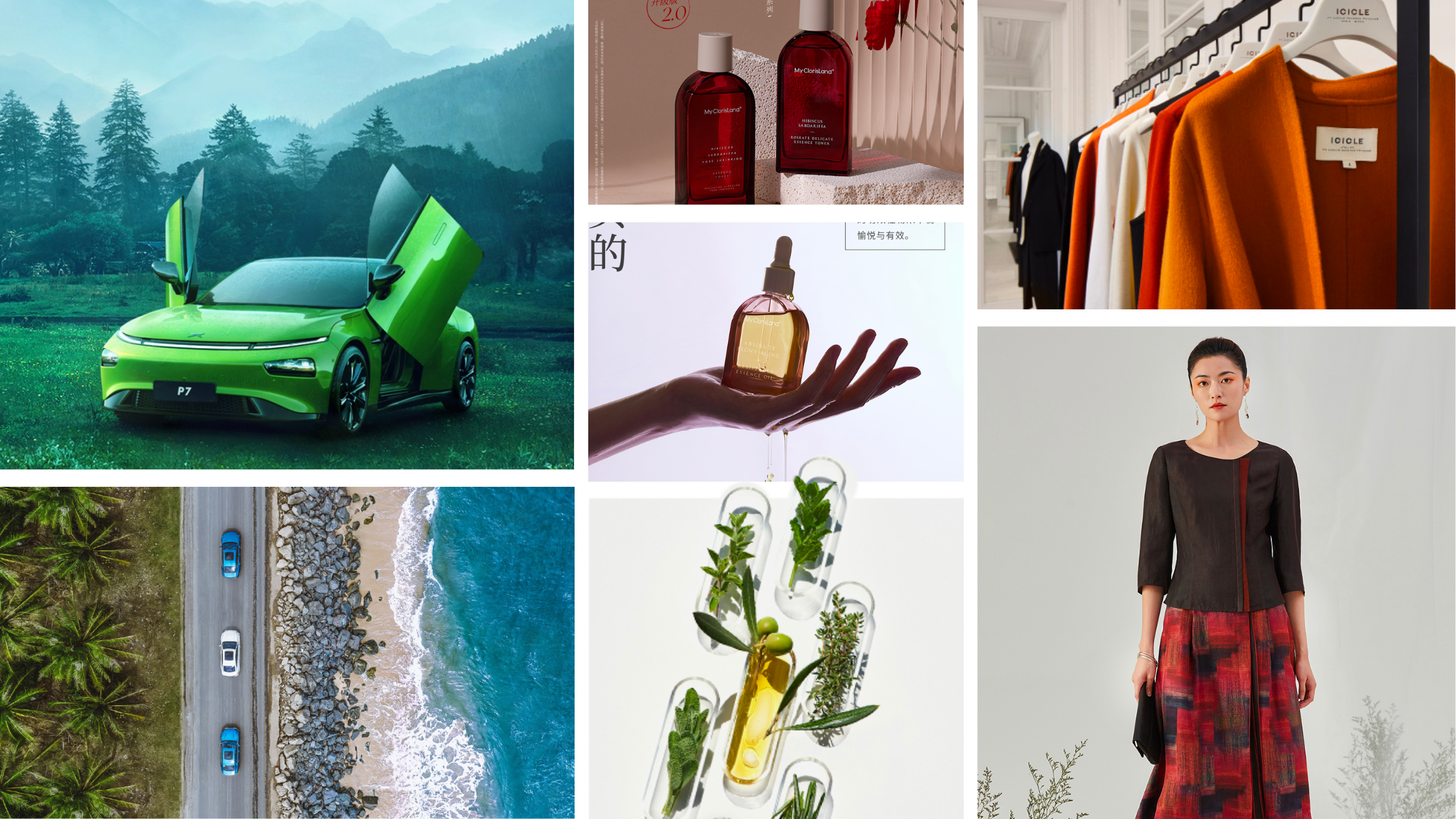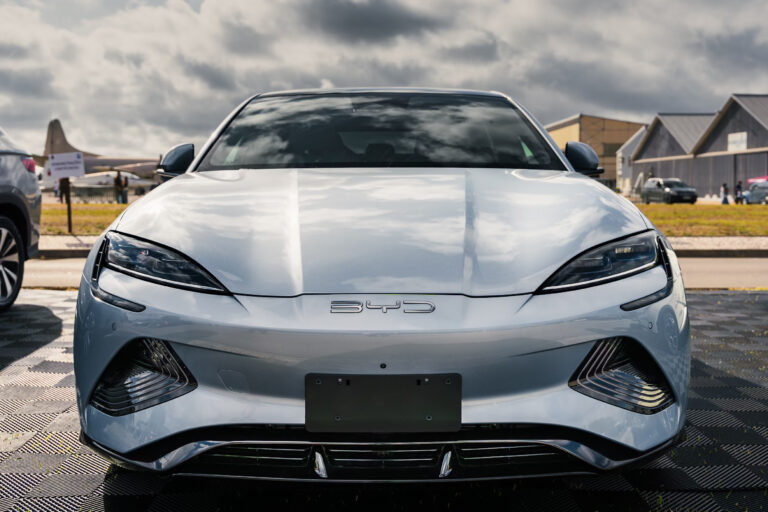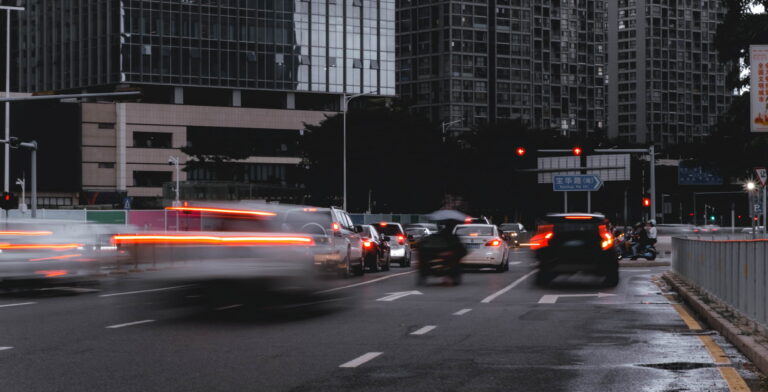Under the reality of global warming, sustainable business practices have become increasingly important to align with the shift in Chinese consumers’ purchasing decisions toward greener alternatives. With the efforts of education on sustainability, flourishing exposure to social media, and the government’s commitment to carbon neutrality, sustainable transfer has accelerated among Chinese people, especially within younger demographics. For instance, 89% of Gen Z and 90% of Millennials have changed their shopping behaviours at least once over the past six months due to environmental concerns in 2021.
Apart from the government’s propaganda being a strong factor in influencing Chinese perceptions of sustainability, brands also play a significant role in leading sustainable consumption to consumers, particularly sustainable businesses that embrace the 17 SDGs. More and more Chinese brands and industries are taking actions toward sustainability, including the reduction in carbon emissions. This article will introduce domestic players that have participated in paving a greener wave exclusively in the automobile, beauty, and fashion industries.
The automobile industry: how electric vehicles are more sustainable than conventional cars
In 2021, the sales of electric vehicles in China reached 2.92 million and dominated 53% of the global market share, whereas the US is only at 10%. Although government subsidies and incentives play a significant role in supporting EV purchase, environmental friendliness remains the top reason for choosing electric vehicles over conventional cars in China.
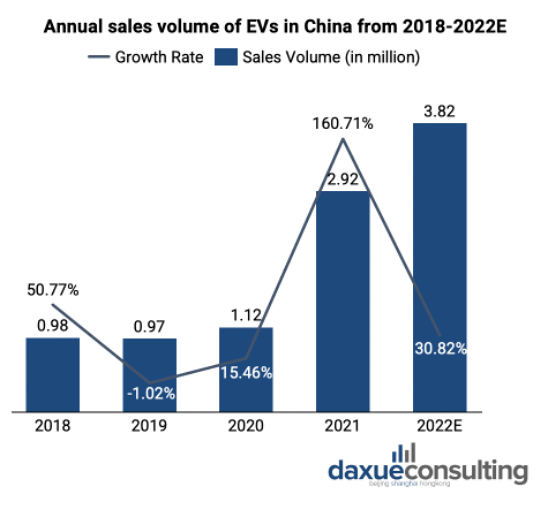
However, despite some controversy around battery manufacturing and power plant emissions of EVs, domestic electric car companies such as Geely and XPeng are showing more progress towards sustainability, especially in the supply chain.
Geely Auto (吉利汽车)
Geely Auto is one of the major market players in the EV industry that covers the low to high-end markets. Geely’s EV brands include Dihao EV (帝豪EV) established in 2015, Geometry (吉利几何) in 2019, followed by a premium EV brand named ZEEKR 001 (极氪001) in 2021, and Wei Lan (蔚蓝) in 2022. As of the first half of 2022, Geely accounted for 4.5% of domestic electric vehicles in China and owned the sixth-largest market share. More importantly, it is the first Chinese car company that promises to comply with the Science Based Targets Initiative (SBTi), which will publicly report its carbon reduction targets. Other initiatives Geely has participated in include the “Business Ambition for 1.5ºC” and the “Race to Zero” campaign led by the United Nations.
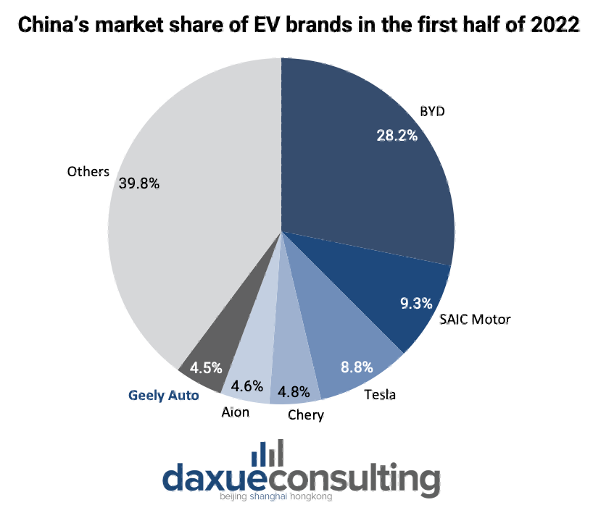
How Geely paves its way to a greener value chain
On 27th June 2022, Geely disclosed its ambitious goal of reducing 25% of carbon emission from a single vehicle by 2025 and being carbon neutral by 2045 in its 2021 ESG report. Geely implements a series of reduction measures starting from the supply side, manufacturing side, and user side.
Geely uses environment-friendly materials, including recycled steel, aluminium, plastics, fabrics, and fibres. One of its electric car models, ZEEKR 001, targeting the high-end market, uses 15% of recycled steel plate material and 25% of recycled aluminium. On the other hand, Geely’s sub-brand Volvo is highly concerned about animal welfare, which will replace all leather with Nordico, a sustainable material that produces 70% fewer carbon emissions than leather.
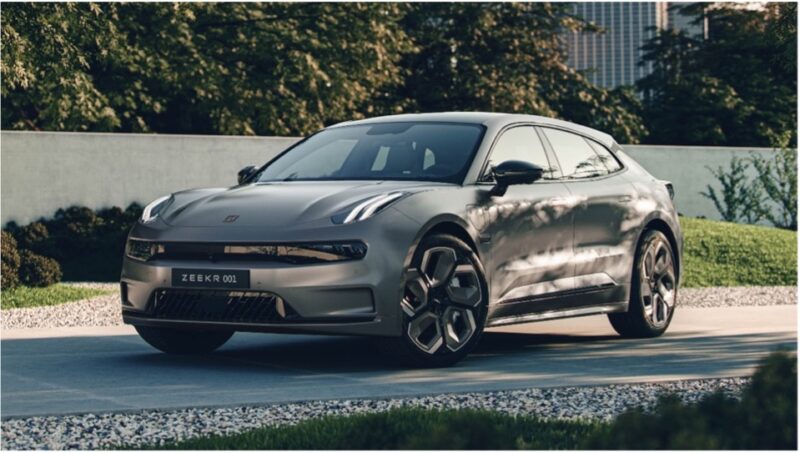
Furthermore, Geely is in the progress of upgrading its old factories to reach the goal of ‘zero water waste, zero landfill, and zero harmful substance discharged’. For example, the Lutes Technology Wuhan intelligent industry was designed as a ‘zero emission factory’, with in-built facilities like photovoltaic power generators, waste gas incinerators, and rainwater collections. The upgraded technology enabled Geely to recycle and reduce the use of natural resources involved in the manufacturing process.

Currently, Geely’s factories can recycle up to 97.6% of industrial water and are fully achieving the government’s standard in terms of waste, gas, noise, and other pollutant control. Moreover, Geely continues to optimize its logistic structure toward a more sustainable approach to transporting EVs from factories to dealers, by increasing vehicle deliveries through railways and waterways, which produces fewer carbon emissions compared to the roadway. This proportion increased by 3% between 2020 and 2021 and will continue to rise due to Geely’s promise of expanding sustainable logistics.
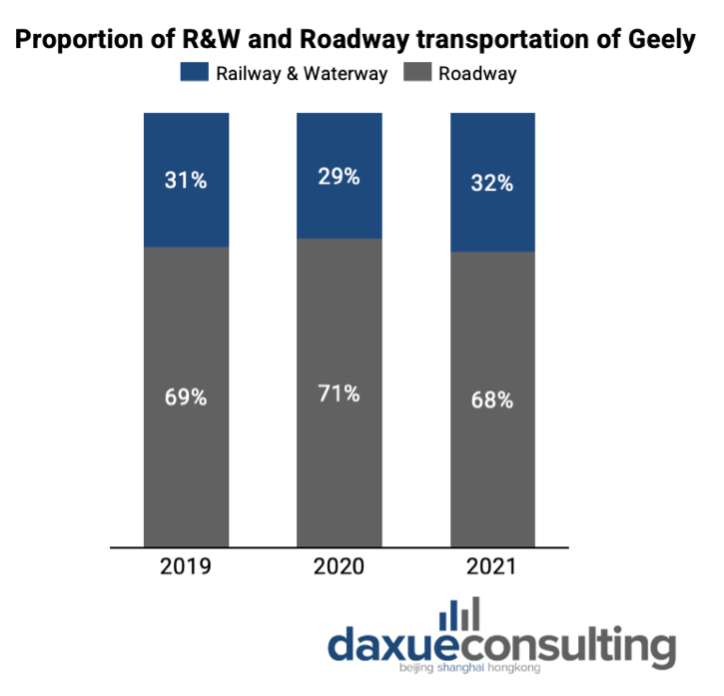
From the consumer’s side, not only is Geely encouraging more consumers to purchase electric vehicles, but also consumers who use the service of ride-hailing. CaoCao Travel (曹操出行), an online multi-modal transportation platform, was developed by Geely in 2015 with a focus on ‘green traveling’. EVs are the dominant type of vehicles used in CaoCao, which differentiates from its competitors like DiDi. CaoCao is also the first platform that sets up a carbon asset account for users, in which they reduce up to 142 grams of carbon emission per kilometer and storage in CaoCao applications. Since 2015, CaoCao Travel has reduced 1.08 million tons of carbon emissions.
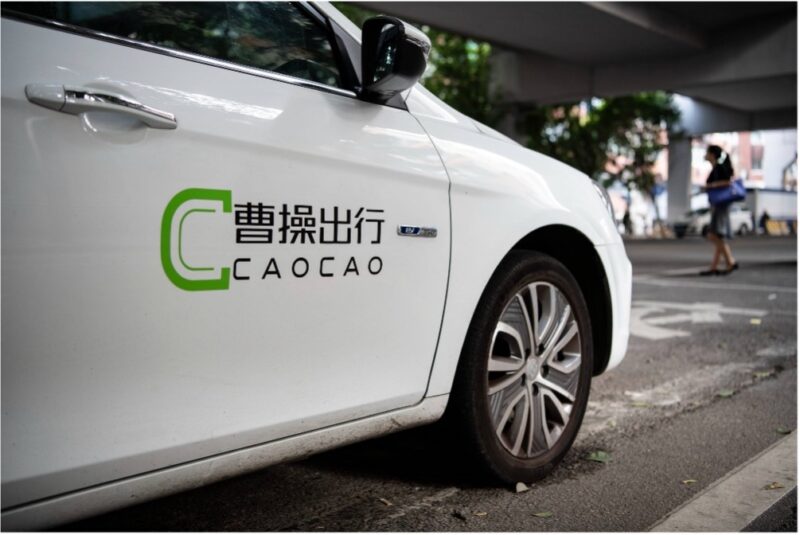
XPeng (小鹏汽车)
XPeng, another domestic player in the EV market, was established in 2014 and produced four sedans and SUVs. The volume of sales reached 98,000 in 2021, with a y-o-y increase of 360%. However, this was still unprofitable, with an annual loss of $763.1 million (4.8 billion RMB) in 2021, mainly due to the low gross margin of EVs and high operating costs. Despite the financial loss, XPeng still takes the initiative to promote carbon neutrality by running sustainable practices through its car designs, production, and operation.
How XPeng is building up its sustainable products
In terms of car design, XPeng improves its wind resistance control and efficiency of barrier usage to reduce the energy consumption of its products. The 98,000 units sold in 2021 were 100% low-carbon products. According to China Automobile Low Carbon Action Plan, the carbon emissions of its G3 and P7 models are 21% and 26% lower than those of the same type of fuel vehicles respectively. In other words, the life-cycle impact of EVs sold in 2021 will reduce 1 million tons of carbon emissions.
XPeng also prioritizes sustainability in its production, such as utilizing and recycling natural resources. The recycled rate of industrial water reached 96% (Geely achieved 97.57%) and around one-fourth of water used during production is recycled. On top of that, XPeng installed photovoltaics panels in its Zhaoqing (肇庆) factory. Similar to solar panels, photovoltaics is the conversion of thermal energy to electricity without polluting or emitting greenhouse gas. In November and December of 2021, the photovoltaics power at XPeng’s factory generated 2.9 million kWh, equivalent to the reduction of 1,531 tons of carbon emissions.
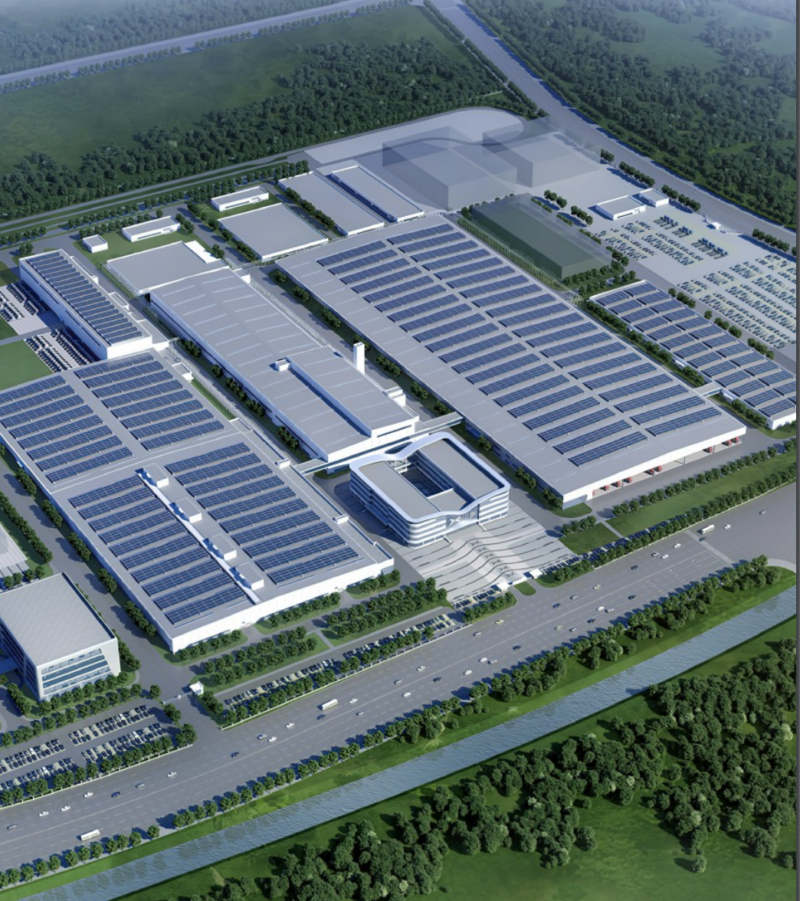
The clean beauty industry: is it really more natural?
The beauty industry is one of the top contributors to plastic waste, producing over 120 billion packaging annually. As a result, more and more brands are working towards creating more sustainable products and reducing plastic waste. 91% of respondents from daxue consulting’s Green Guilt Report stated that environmental sustainability is a crucial factor when purchasing beauty products. Moreover, Chinese consumers have a preference for natural ingredients, as they tend to care more about the ingredients inside skincare products instead of the brand image, and natural ingredients are considered healthier for both individuals and the environment. Natural beauty is also commonly known as clean beauty.
According to the General Principle of Clean Beauty, clean beauty products are responsible for human health, the environment, animals, social responsibility, and humanitarianism. As demand and publication of legal framework for clean beauty increase, more domestic beauty brands have built their presence in the clean beauty market, such as My ClorisLand (花皙蔻) and YOKIA (悦可雅).
My Clorisland (花皙蔻)
My Clorisland (MCL), one of the leading brands in China’s clean beauty market, was established in 2011 with the business model of being ‘the most stringent standards of clean products’. The domestic brand currently has eight product series, with its best-selling product being the Hibiscus water and lotion (洛神花水乳) which sold over 1 million bottles on Taobao as of 8th July 2022. MCL also covers ten thousand offline stores with more than 4 million members.
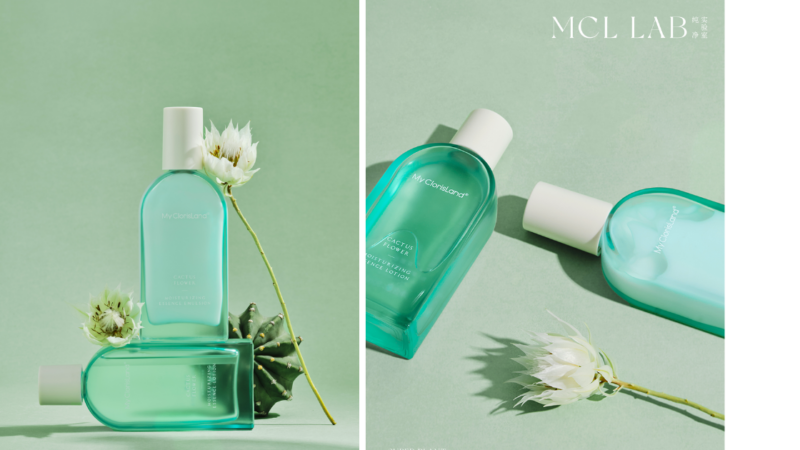
How MCL sustainably sources from ingredients to production
The driver of MCL sales is closely associated with its sustainable value chain that creates a natural product. Focusing on ingredients, MCL published a “Never List” of “2,000+ prohibited raw ingredients in beauty”, which bans 2,143 ingredients that are harmful to the human body and the environment. The amount of prohibited ingredients from the “Never List” is around 400 more than the EU and 800 more than the Chinese government’s standard, demonstrating MCL’s high requirement for sustainable ingredients, which seeks to minimize pollution from the start of its manufacturing process.
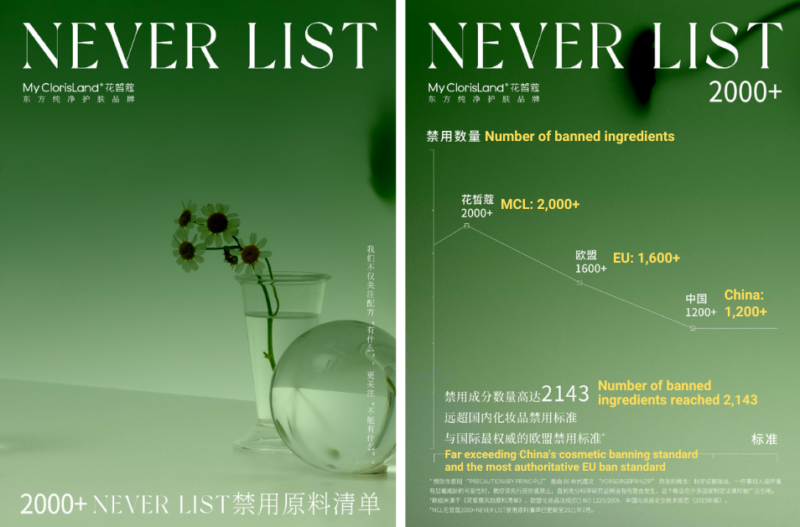
MCL also prioritizes sustainable packaging to align with the goals of carbon peaking and carbon neutrality. Each bottle of its products uses 90% of recycled glass and 10% of degradable PETC, and the outside package uses 100% certified paper.
MCL leading the publication of legal standards in clean beauty
Apart from the sustainable practices involved in the brand’s production process, the more phenomenal achievement is related to the official standard of clean beauty. Published by the Guangdong government on 10th July 2022, clean beauty has transformed from conceptual propaganda to a standard framework under “the General principle of clean beauty – Cosmetic”. In 2020, MCL took the initiative and led a research to explore the development of clean beauty in the West, the status of clean beauty in China, and 20,000+ carcinogenic kinds of literature. This research has aided the government to standardize the ingredients, manufacturing, packing, marketing, and brands of clear beauty, which largely accelerated the whole industry’s development towards environmental protection.
YOKIA (悦可雅)
YOKIA was established in 2010 and had a focus on extracting ingredients from plants. The brand specifically targets sensitive skin and positions itself within the plant-based skincare market.
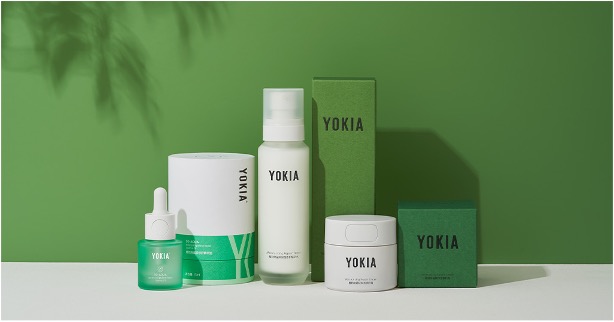
YOKIA: Sustainable practices in both ingredients and package used
Similar to MCL, YOKIA claims its products are free of additives, harmful substances, and sensitizing ingredients. It uses plant-based ingredients which require less water and energy as well as produces less pollution during the manufacturing process, compared to chemical ones. In terms of packaging, 90% of materials used for bottoms are recycled.
Its top-selling product – Repair Essence Oil, scored 5/5 on the Chinese Beauty app Beauty Evolution (美丽修行), which analyzes the ingredients of products, the safety of each ingredient, and its negative impact associated with them. The top score demonstrates its vegan ingredients are welcomed by a large proportion of customers and are truly effective in minimizing pollution to the environment. Therefore, YOKIA paves its greenway through the supply chain from ingredients to packages.
The fashion industry: how slow fashion is the new trend of going green in China
Fast fashion is the second largest polluter in the world. For instance, Zara, owned by Inditex Group, released 120,000 metric tonnes of CO2 emissions in 2021 alone, followed by Next and H&M with 80,000 and 72,000 tons respectively. However, in recent years, there has been a growing wave of rejecting fast fashion in the West. Meanwhile, 89% of Chinese consumers are aware of the importance of sustainable fashion. In contrast to fast fashion which promotes fast, cheap, and disposable clothes, sustainable fashion or ‘slow fashion’ concerns most about the process, resources, and impact of clothing production, which are usually better in quality and durability. As a result of the negative impact brought by fast fashion, it is important to bring attention to the growing sustainable fashion brands in China.
ICICLE (之禾理念)
Founded in 1997, ICICLE has continuously been building up a sustainable brand that targets the middle market, specifically, females aged between 25 to 30. ICICLE seeks to simplify designs and discards the additional usage of materials that lack practical usage. Its products have also been meticulously designed to meet durable use for the longer term. Currently, the brand has a total of 271 offline stores across China, Japan, and France.
ICICLE conveys its sustainable principle starting from the choices of raw materials. The brand is committed to only selecting cashmere, wool, linen, silk, and cotton from suppliers who are impeccable in environmental protection. Their materials are coloured by natural dyeing, including plant-based dyeing, tea-based dyeing, and grain-based dyeing, which are opposite to the chemical dye that produces large amounts of pollution.
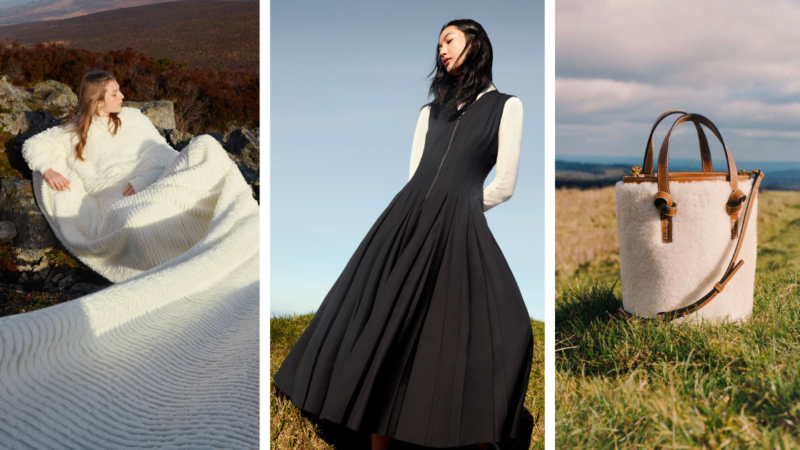
ICICLE is also putting sustainable production as one of its core objectives. Regarding clean energy, it uses municipal central heating to solve the problem of waste gas emissions. It also upgrades water treatment technology to control the generation and disposal of wastewater. More interestingly, ICICLE uses surplus cutting materials to decorate its store window, which is another creative approach to reducing material waste.
TANGY (天意)
TANGY was established by Liang Zi in 1994 and is known for the use of Liangzhou silk dyeing, a traditional technique in China that has almost disappeared. TANGY insists on sustainable values, from the Liangzhou silk to the natural dyeing process, aiming to reduce its environmental impact.
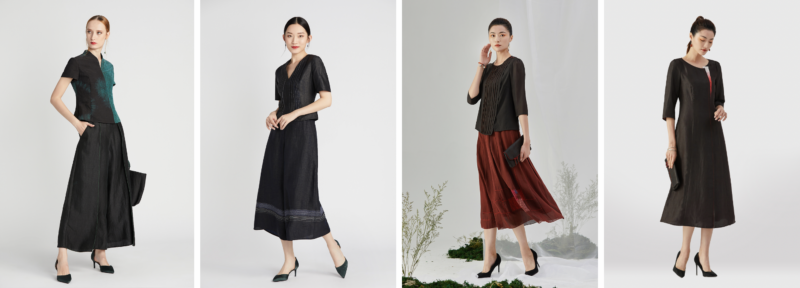
For raw materials, TANGY uses natural fabrics such as hemp, cotton, wool, and the scarce Liangzhou silk. This silk is made from natural ingredients and elements of water, sunshine, and plant between only April and October. The fabric is then soaked into a liquid from the roots of an herb that grows in the south of China and is laid out on the grass to be dried. This process is possible to repeat up to 30 times.
TANGY uses predominantly natural silk, which uses less water, energy, and chemicals compared to synthetic fabrics that are produced entirely from chemicals. Silk is also a renewable resource that can be biodegraded, which will eventually be consumed by the soil and other natural components. In other words, the natural process avoids the usage of chemicals, and less pollution will be generated as a result.
Chinese netizens are willing to learn about sustainable practices behind their products
Regarding the search volume on Chinese social media platforms such as Xiaohongshu, the topic of sustainable fashion has received the most discussions from netizens (31,000+ notes). ‘What is sustainable fashion?’ and ‘How can we be more sustainable with fashion choices?’ are the top-searched questions around the subject of sustainable fashion, whilst other contents include brand advertising, store try-out, and KOL’s promotions.
Based on the number of likes and comments, Chinese netizens are keen to learn more about the ongoing trends of sustainable fashion and fashion waste, as well as raising concerns related to ‘green washing’, which brings attention to domestic fashion brands.
As for clean beauty (21,000+ notes), there was less educational-based content, with the majority being around advertisements and KOL’s promotions of different beauty brands and products. It is apparent that Chinese netizens seem less interested in commercial content, of which a large number of marketing campaigns received very few engagements.
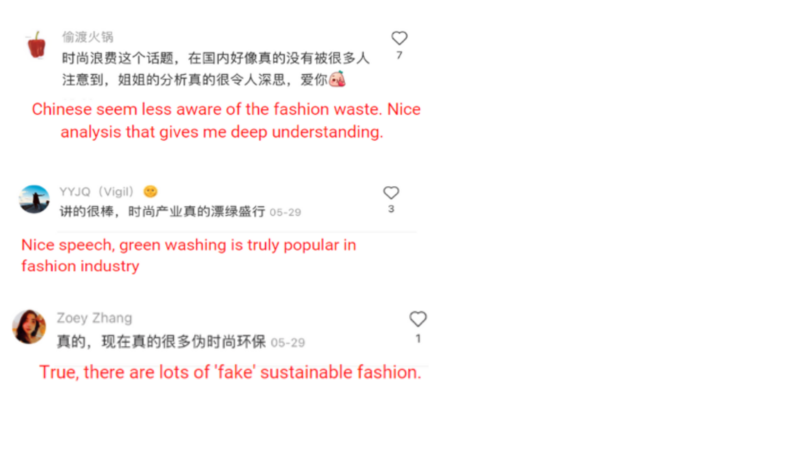
Despite the Chinese government’s propaganda in promoting environmental sustainability, such as topics like waste sorting, the rise in willingness of learning about different sustainable practices creates incentives for businesses to act more green and further educate consumers. Moreover, apart from the increased environmental awareness from youngsters, most Chinese people who agree on the importance of sustainable business practices will also accelerate the demand for sustainable consumption from all industries, not just the automobile, fashion, and beauty sectors.
Key takeaways from China’s sustainable market
- Sustainable awareness in China is growing, especially among Gen-Zs and Millennials who have even altered their shopping behaviours recently over environmental concerns.
- China is a major player in the electric vehicle market, representing more than half of the global market share in 2021.
- Domestic EV brands such as Geely and XPeng have developed eco-friendly value chains in reducing carbon emissions from manufacturing to production to the transportation of their vehicles.
- The first official standard of clean beauty was published on 10 July 2022, with the assistance of the domestic clean beauty brand, My Clorisland.
- Two domestic fashion brands, ICICLE and TANGY, are using eco-friendly materials and natural dyeing processes to reduce their environmental impacts.
- Chinese netizens are less interested in commercial advertisements about sustainable business on social media but are keen to learn more about it through educational-based content.


